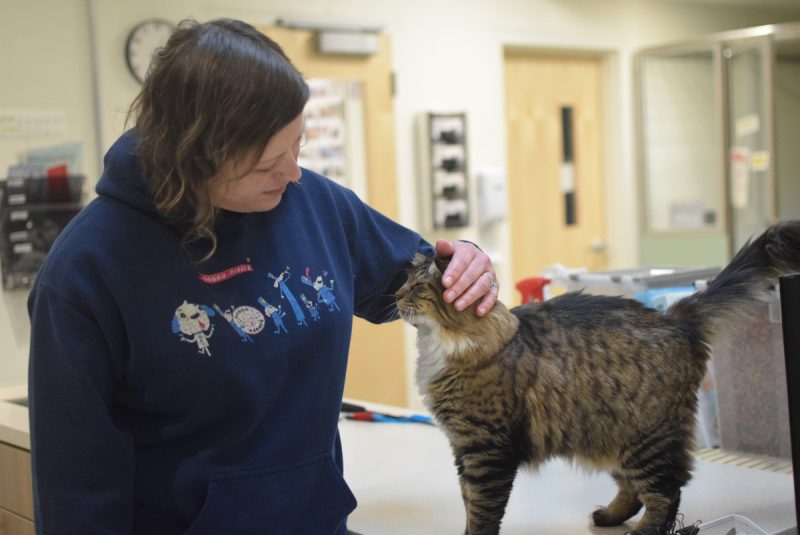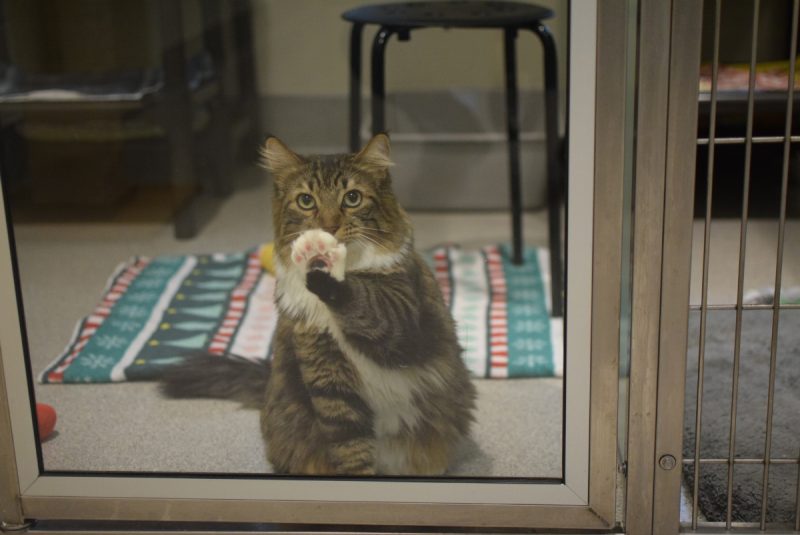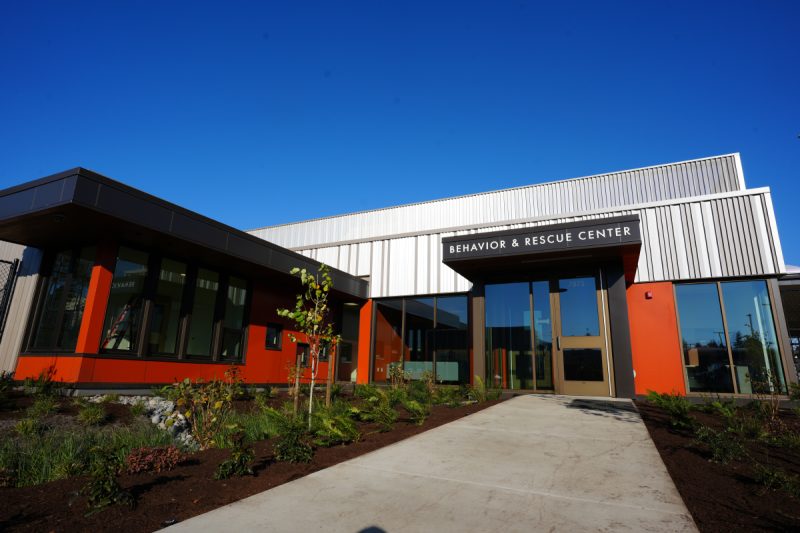For the primary time in its historical past, the Oregon Humane Society’s (OHS) Habits Modification Program for cats and kittens has surpassed 100 annual adoptions, with 102 cats discovering loving houses in 2024. This groundbreaking program is particularly designed for pets who require specialised coaching and care earlier than they’re prepared for adoption.
Habits Modification Coaching for Cats


Cats on the OHS typically face distinctive challenges. Many are extraordinarily shy and fearful, whereas others battle with overstimulation, frustration, or particular behavioral points that make it troublesome for them to adapt to life in a house. That is the place the Habits Modification Program is available in.
“When individuals consider conduct modification and coaching, canines are sometimes who involves thoughts,” says Tanya Roberts, OHS Director of Coaching and Habits. “However this program is having a unprecedented, lifesaving impression on cats and kittens.”
Take, for instance, a 5-month-old kitten named John. On December 24, John turned the one hundredth feline to be adopted by way of the Habits Modification Program in 2024. John got here to OHS from an overwhelmed pet proprietor struggling to take care of too many animals. His adoption represents a significant milestone for a program that has seen important progress since shifting to its purpose-built Habits and Rescue Middle in late 2022.
Erika Sims, the OHS Feline Habits Modification Supervisor, explains that “cats and kittens are preparing for adoption nearly 50% sooner than they did once we had been doing this work in the primary shelter. This implies we can assist much more cats as a result of we’re really a lifeline and infrequently the final choice for a lot of the felines who come by way of our program.”
The success of the Habits Modification Program lies in its individualized strategy. Each cat getting into this system receives a personalized plan tailor-made to their particular wants.
“Working with a shy, fearful cat is a sluggish strategy of constructing belief,” says Erika. “Whereas a cat who will get overstimulated and pissed off wants time to decompress earlier than we are able to begin altering their conduct.”
Endurance is essential to addressing behavioral challenges in cats. The method is commonly gradual, however the outcomes are profound.
“Progress is measured in small increments, however the outcomes are life-changing, and lifesaving,” Erika provides. “We’re altering stereotypes and displaying that cats have an unbelievable capability to be taught and alter.”
A Lasting Impression


Pet mother and father who welcome these particular cats into their houses obtain further help and steerage to make sure a clean transition and a profitable match. This additional degree of care helps create lasting bonds between the cats and their new households.
As this system continues to develop, so does its impression. The milestone reached in 2024 is a testomony to the dedication of the OHS staff and the transformative power of behavior modification. By addressing the distinctive wants of every cat, OHS is just not solely giving them a second likelihood at life but additionally altering the way in which individuals view feline conduct and coaching.
With each success story, the OHS Habits Modification Program is proving that even essentially the most difficult cats deserve an opportunity to thrive—and that with endurance, compassion, and experience, they’ll discover their place in a loving residence.
Concerning the Oregon Humane Society


Based in 1868, the Oregon Humane Society is among the most revered animal welfare organizations in the USA. Via their mission of Making a Extra Humane Society, they’re working towards their imaginative and prescient of a world the place all animals are handled with compassion, kindness, and respect. With campuses in Portland and Salem, OHS is an Oregon-based nonprofit that depends on donor help for its adoption, training, medical, and humane legislation enforcement packages. Go to oregonhumane.org for extra info.
Photos offered to Catster by Oregon Humane Society
Source link













